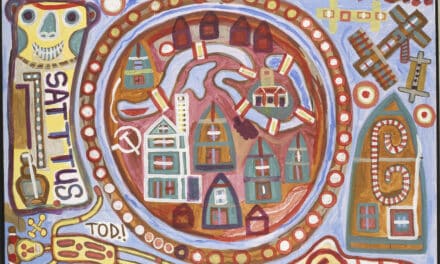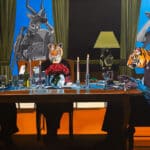Neben „Romeo und Julia“ ist die Geschichte von „Orpheus und Eurydike“ wohl die berühmteste, aber auch die tragischste Liebesgeschichte der Weltliteratur. Dieser antike Mythos um die Macht der Liebe und den Zauber der Kunst hat Komponisten und Dichter bis in die Gegenwart immer wieder zu Neuinterpretationen inspiriert.
Der Mythos um Orpheus und Eurydike gehört in das Universum der Fantasie, dort wo sich die Grenze zwischen Sichtbarem und den Traumbildern verwischt. In „Orpheus oder Die Sprache der Liebe“ erklingen Lieder über Liebe und Leidenschaft genauso wie über Einsamkeit und die Endlichkeit des Lebens. Die Geschichte von Orpheus und Eurydike wird vom jungen Regisseur Sebastian Schimböck neu erzählt, mit existentiellen Texten erweitert und mit melancholischen bis rockigen Songs und atmosphärischen Sounds und Bildern auf die Bühne gebracht.
Von Apollon, dem Gott der Musik, bekam er eine Lyra geschenkt. Unter den Sängern galt er als der beste, Orpheus konnte Götter und Göttinnen, Menschen und sogar Tiere, Pflanzen und Steine zum Weinen bringen. Die Bäume hörten ihm begeistert zu und die wilden Tiere wurden friedlich, wenn er mit seiner kleinen Harfe spielte. Sein Gesang erweichte Felsen und er konnte sogar das wütende Meer durch sein Singen bezwingen. Als Orpheus’ Ehefrau Eurydike durch einen Schlangenbiss starb, folgte er ihr in die Unterwelt. Durch seinen Gesang wollte er Hades, den Gott der Unterwelt, bewegen, ihm seine geliebte Frau wiederzugeben. Seine Kunst war so überwältigend, dass selbst der Höllenhund Kerberos aufhörte zu bellen. Seine Bitte für die Rückkehr seiner großen Liebe wurde ihm unter einer Bedingung gewährt: er dürfe sich beim Aufstieg in die irdische Welt nicht nach Eurydike umschauen.
Premiere 23. Februar 2024
weitere Aufführungen: 16. März, 4., 5. und 17. April 2024












